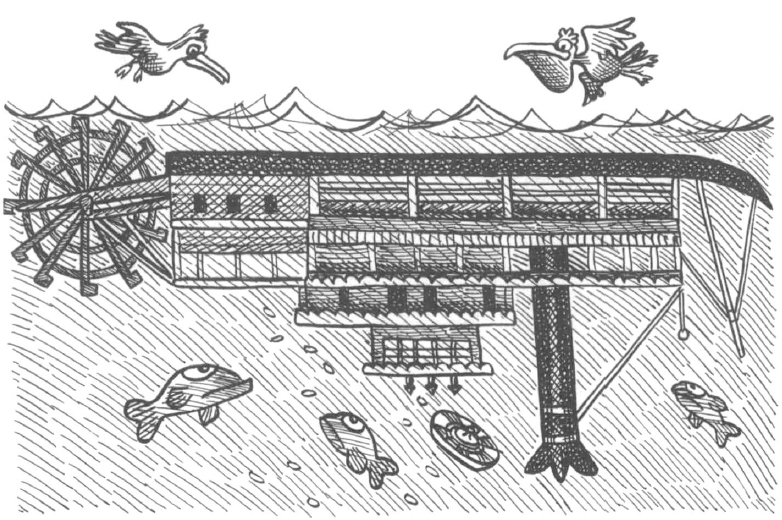
This article originally appeared in Southern Exposure Vol. 23 No. 1, "Image of the South." Find more from that issue here.
Mississippi may have more riverboats than any state, but a few are starting to sink. The four-year-old riverboat gambling industry, which is exploding nationwide, witnessed its first bankruptcies last year. There could be more.
Last year, Southern Exposure reported on the burgeoning riverboat gambling industry in Tunica (Summer 1994). It was an economic boom that made some residents uneasy. While the casinos did create jobs, profits went elsewhere. Low tax rates meant the area experienced little civic improvement. Roads clogged with traffic led to more highway deaths.
And now, some of the boats are being swept away. Bell Casinos, Inc., which owns two Mississippi casinos, went belly up at the end of August, filing for Chapter 11 bankruptcy. On December 1, Palace Casinos, Inc., filed for protection from its creditors in bankruptcy court. Palace owns one riverboat in Mississippi. Another outfit, Treasure Bay, missed a bond payment in November, and it’s now in default since it didn’t ante up the cash in December. Industry watchers say it won’t be long before Treasure Bay’s two boats also capsize financially.
Wall Street analysts and gambling experts say Mississippi is suffering from a glut of riverboats. While most states that allow riverboat gambling have capped the number of floating casinos, Mississippi set no limit and currently has 31. Added competition comes from nearby Louisiana, which opened at least seven boats in 1994.
Bill Eadington, professor of economics and director of the Institute for the Study of Gambling at University of Nevada in Reno, says that what happens in Mississippi will likely parallel Atlantic City’s experience between 1988 and 1990. During that time, the New Jersey city watched eight of its 18 casinos go bankrupt. “What’s happening (in Mississippi) is very predictable from an economic perspective,” Eadington says. “We’re seeing the by-product of a classic shakeout. And we’ll probably see more attrition, more bankruptcies, and possible mergers of some companies.”
Proponents of gambling sell riverboat as an economic development tool to jump start decaying areas — a theory anti-gambling groups challenge. It wasn’t long ago when Tunica, Mississippi, became a hot site for waterborne wagering. Located about 30 miles south of Memphis, Tennessee, it was a perfect location to entice would-be high rollers to drive south. The first floating gambling hall opened in October 1992. At the end of 1994, there were nine.
But Tunica, which is in one of the 30 poorest counties in the nation, and Memphis could support only so many gamblers. So companies started flying in players from Atlanta and busing them from Little Rock, Arkansas, and Birmingham, Alabama.
But the competition in Tunica got to be too much for some riverboats. President Riverboat Casinos, Inc., shut its doors in July 1994 and is planning to relocate to the Iowa/Nebraska border. Lady Luck Gambling Corporation floated its boat 20 miles downstream to adjacent Coahoma County where a bridge leads to Arkansas.
During the most recent 12-month period, casino gaming brought in a hefty $1.6 billion. However, a look at financial indicators reveals this new industry may be facing serious decline. A July report by Salomon Brothers, Inc., an investment brokerage firm, estimates the average Mississippi casino operating profit will decline from 28 percent in 1993 to 13 percent in 1996. Operating profit is the difference between the revenues and the related costs and expenses of a business. It’s a gauge often used by analysts to measure the health of a company.
As winter set in, industry watchers expected more boats to find themselves in chilly financial straits — especially on the Mississippi Gulf Coast where there are at least a dozen floating casinos. “If these guys were in trouble during the best months of the season, what will happen during the bad months of the year?” asks Larry Pearson, publisher of Riverboat Gaming Report, a casino industry newsletter.
Tags
Jenny Labalme
Jenny Labalme photographed the 1982 Warren County protests as part of a documentary photography class she took while an undergraduate at Duke. She spent almost two decades working first as photojournalist for The North Carolina Independent (now Indy Week), and later as a journalist for the Mexico Journal, The Anniston Star, and The Indianapolis Star, and is currently the executive director of the Indianapolis Press Club Foundation.

